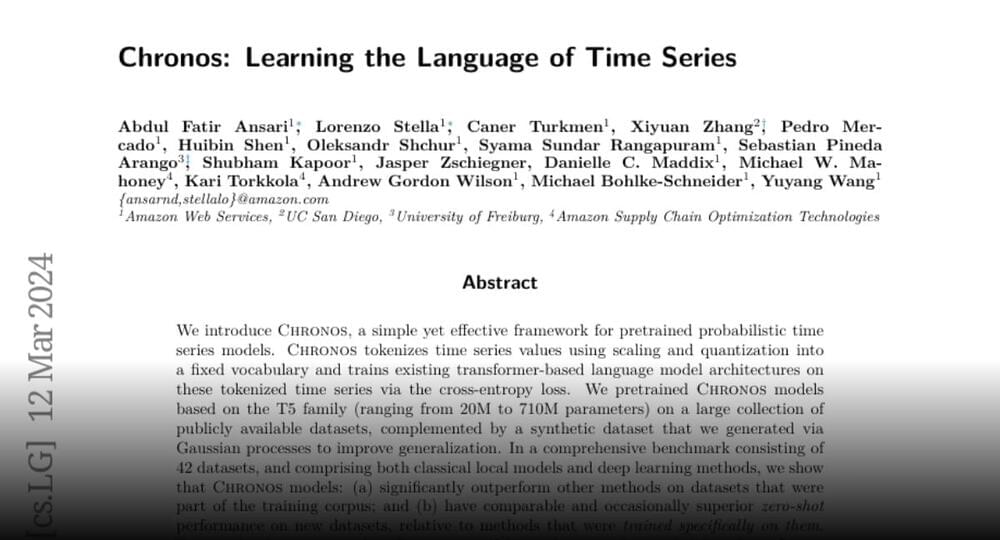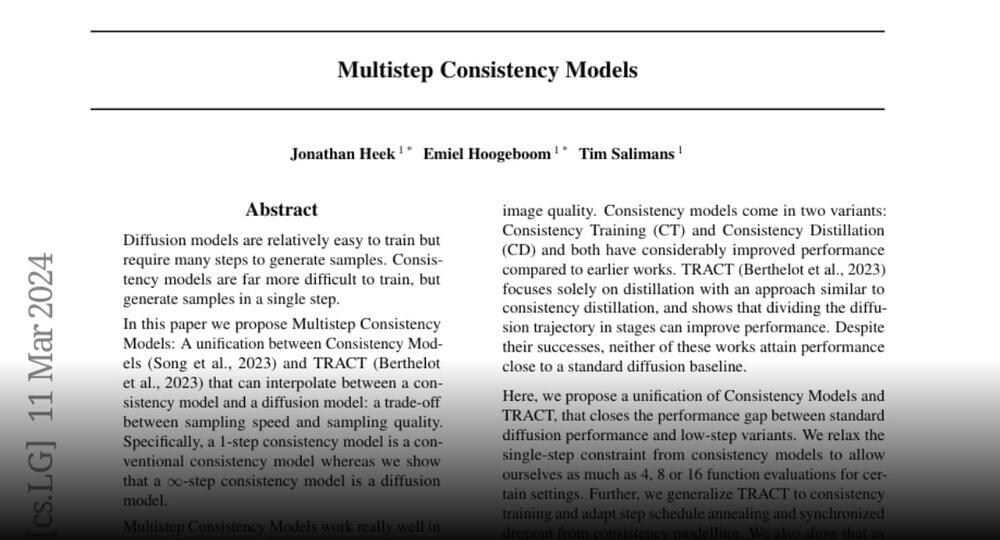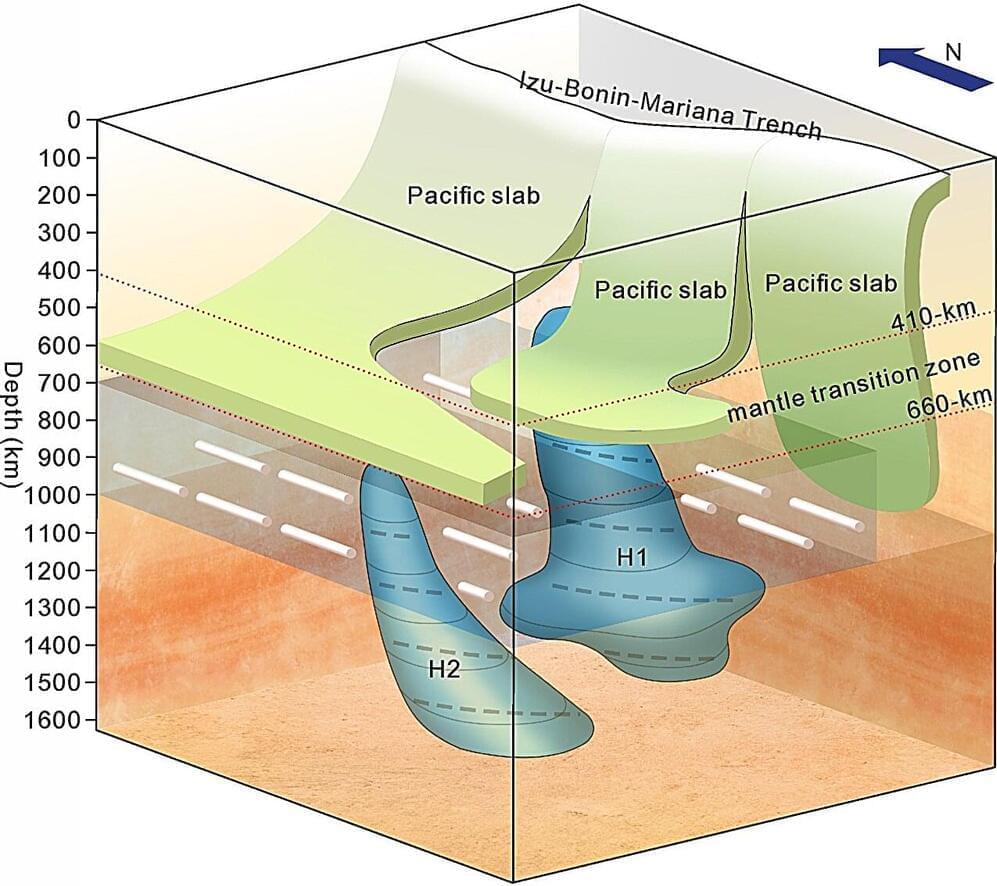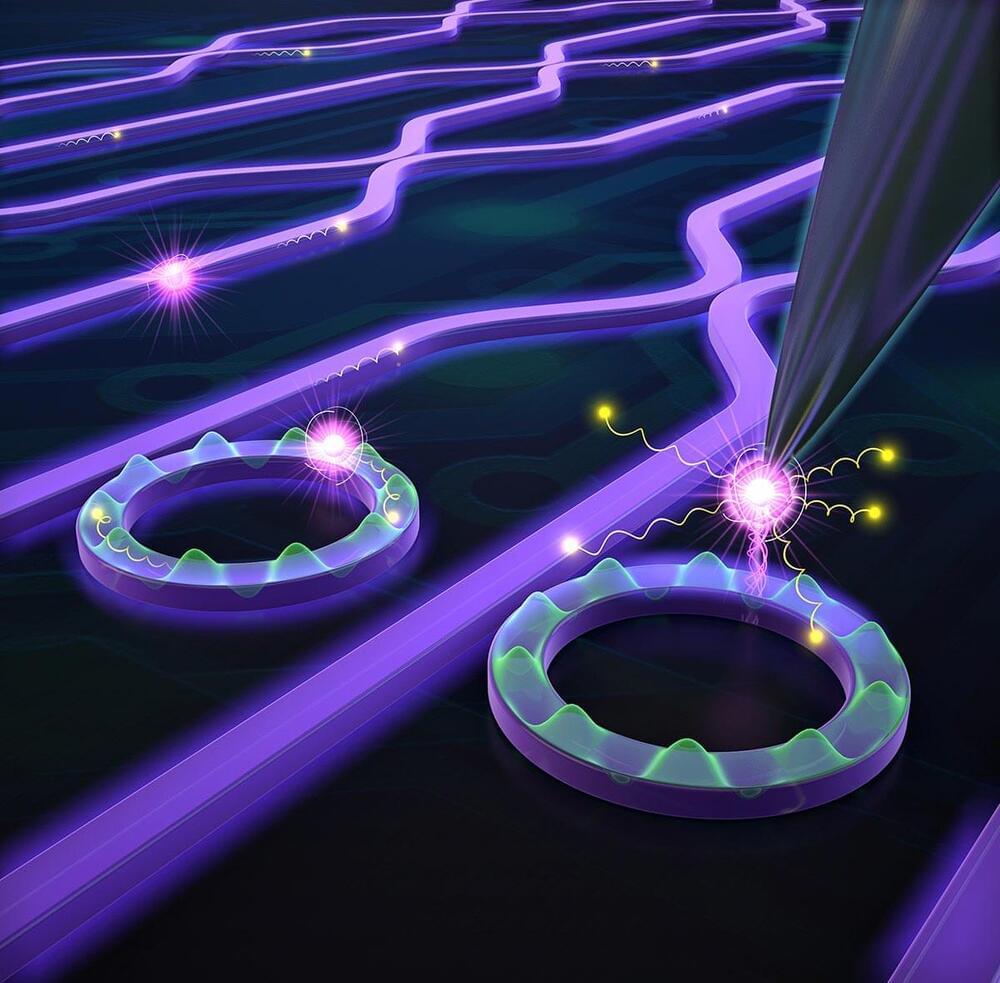Google announced a substantial overhaul to its spam policies for search yesterday, introducing a crackdown on AI content.





Researchers from China and Japan have discovered distinct characteristics of Earth’s lower mantle flow field. They investigated seismic anisotropy in the upper part of the lower mantle beneath the Philippine Sea Plate (PSP) and found that the ancient lower mantle flow field is still preserved there.
The study is published in Nature Geoscience.
The lower mantle is an important layer of the Earth and may play an important role in the evolution and material cycling of Earth’s interior. It is generally believed to be not only the final destination of subducted slabs, but also the birthplace of mantle plumes, which are two major styles in the evolution and material cycling of the Earth’s surface and interior. However, our knowledge of the characteristics of the flow field and geodynamics of the lower mantle is still deficient.

A nova outburst visible to the naked eye is expected to decorate the night sky this year, offering a rare skywatching opportunity.
The star system offering us this opportunity is known as T Coronae Borealis (T CrB). It’s located some 3,000 light-years away from Earth and consists of a red giant star and a white dwarf that orbit each other. When the white dwarf steals enough stellar material from its red giant companion, it ignites a brief flash of nuclear fusion on its surface, triggering what is known as a nova outburst.

A new generative artificial intelligence startup called Cognition AI Inc. is looking to disrupt coding with the launch of a new tool that can autonomously create code for entire engineering jobs, including its own AI models.
That tool’s name is Devin, and it takes the premise of GitHub Inc.’s and Microsoft Corp.’s Copilot developer tool much further, as it can carry out entire jobs on its own, rather than simply assist a human coder.
In a video (below) attached to a blog post announcing Devin, Cognition Chief Executive Scott Wu demonstrates how users can view the model in action. They can see its command line, code editor and workflow as it goes step-by-step, completing comprehensive coding projects and data research tasks assigned to it.
A newly discovered species of prehistoric bird that lived 120 million years ago is shedding light on how modern birds evolved from their dinosaur ancestors, according to a study published last week in the journal Cretaceous Research.
The scientists who discovered the novel species gave it a name that highlights its uniqueness and pays tribute to the British naturalist David Attenborough: Imparavis attenboroughi, which means “Attenborough’s strange bird” in Latin.
What intrigues researchers is that the proto-bird lacked teeth. While no birds have teeth today, this characteristic made the species abnormal among its contemporaries, as most prehistoric birds still had teeth and claws.
And setting a new state of the art on the SWE-bench coding benchmark
Meet Devin, the world’s first fully autonomous AI software engineer. Devin is a tireless, skilled teammate, equally ready to build alongside you or independently complete tasks for you to review.
With Devin, engineers can focus on more interesting problems and engineering teams can strive for more ambitious goals.

JILA breakthrough in integrating artificial atoms with photonic circuits advances quantum computing efficiency and scalability.
In quantum information science, many particles can act as “bits,” from individual atoms to photons. At JILA, researchers utilize these bits as “qubits,” storing and processing quantum 1s or 0s through a unique system.
While many JILA Fellows focus on qubits found in nature, such as atoms and ions, JILA Associate Fellow and University of Colorado Boulder Assistant Professor of Physics Shuo Sun is taking a different approach by using “artificial atoms,” or semiconducting nanocrystals with unique electronic properties. By exploiting the atomic dynamics inside fabricated diamond crystals, physicists like Sun can produce a new type of qubit, known as a “solid-state qubit,” or an artificial atom.